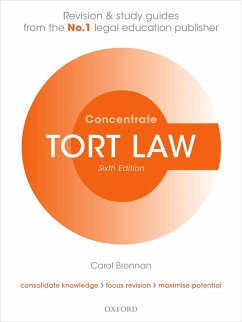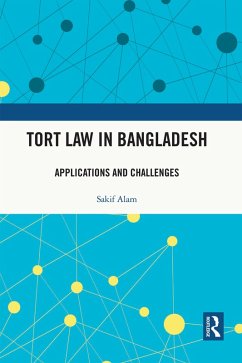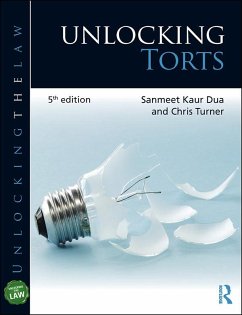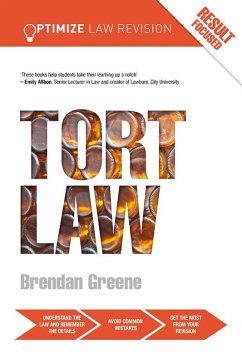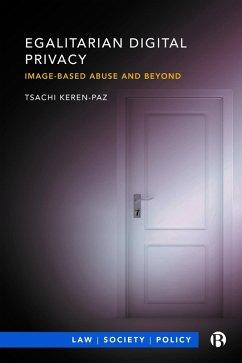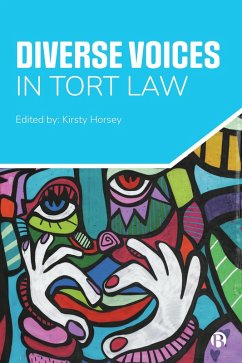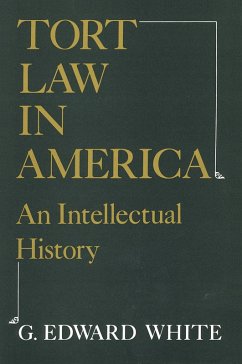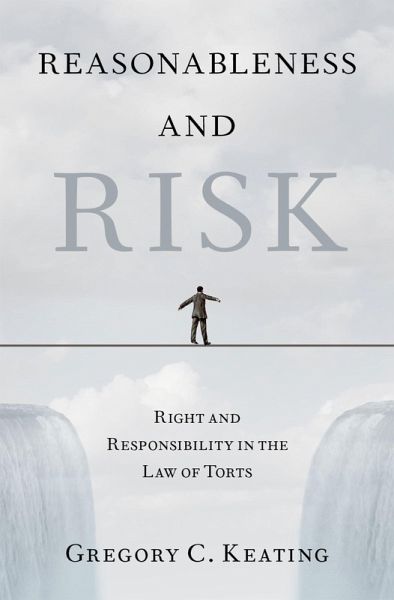
Reasonableness and Risk (eBook, ePUB)
Right and Responsibility in the Law of Torts
Versandkostenfrei!
Sofort per Download lieferbar
39,95 €
inkl. MwSt.
Weitere Ausgaben:

PAYBACK Punkte
20 °P sammeln!
The law of torts is concerned with what we owe to one another in the way of obligations not to interfere with, or impair, each other's urgent interests as we go about our lives in civil society. The most influential contemporary account of tort law treats tort liability rules as shadow prices. Their role is not to vindicate claimants' own rights and interests, but to induce us to injure one another only when it is economically efficient to do so. The chief competitors to the economic view take tort law's importance to lie primarily in the duties of repair that it imposes on wrongdoers, or in t...
The law of torts is concerned with what we owe to one another in the way of obligations not to interfere with, or impair, each other's urgent interests as we go about our lives in civil society. The most influential contemporary account of tort law treats tort liability rules as shadow prices. Their role is not to vindicate claimants' own rights and interests, but to induce us to injure one another only when it is economically efficient to do so. The chief competitors to the economic view take tort law's importance to lie primarily in the duties of repair that it imposes on wrongdoers, or in the powers of recourse that it confers on the victims of tortious wrongs. This book argues that tort law's primary obligations address a domain of basic justice and that its rhetoric of reasonableness implies a distinctive morality of mutual right and responsibility. Modern tort law is preoccupied with, and responds to, the special moral significance of harm. That special significance sometimes justifies standards of precaution more stringent than those prescribed by efficiency. This book also examines the regulatory and administrative institutions with which the common law of torts cooperates and competes, treating these as part of a continuum of institutions that instantiate the primary role pursued by modern tort law - that is, to protect our physical integrity and other essential interests from impairment and interference by others, and to do so terms that all those affected might accept as justifiable.
Dieser Download kann aus rechtlichen Gründen nur mit Rechnungsadresse in A, B, BG, CY, CZ, D, DK, EW, E, FIN, F, GR, HR, H, IRL, I, LT, L, LR, M, NL, PL, P, R, S, SLO, SK ausgeliefert werden.




